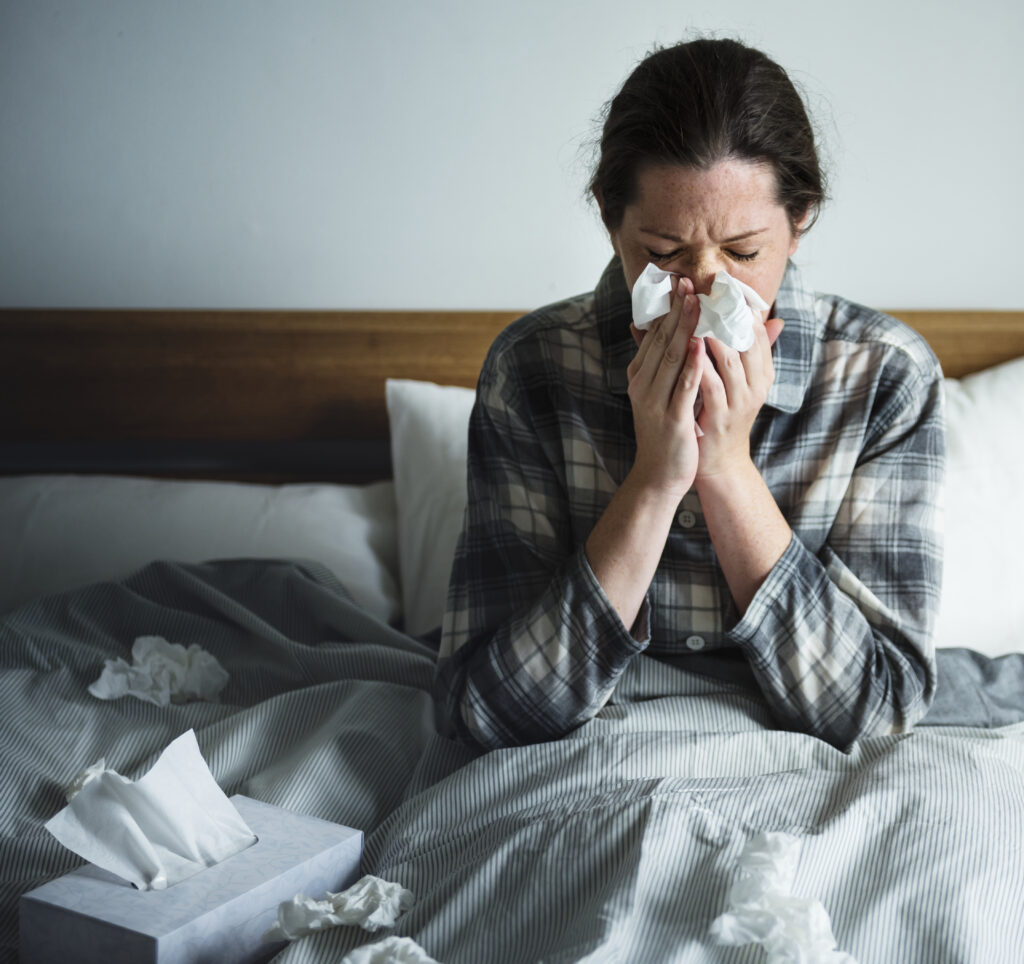
Bird flu is a disease in birds caused by the avian influenza Type A viruses. Bird flu is also called avian influenza. The virus can spread from birds to humans, and cause a variety of cold-like symptoms which can turn serious. Bird flu is an extremely uncommon disease- there are only 900 known cases of bird flu spanning 22 countries. Those infected by bird flu can have a wide range of symptoms from not showing any symptoms at all to needing critical care.

How humans get bird flu
In almost all cases, humans get bird flu when they come in contact with sick birds who have bird flu or their saliva, droppings, or mucous. Birds that can get bird flu include chickens, turkeys, waterbirds (e.g. ducks, geese, swans, etc.), and wild aquatic birds (especially dabbling ducks). Bird flu affects both wild and domestic birds and is extremely contagious among birds.
Sick birds shed the virus through their nasal secretions, saliva, and feces. When a person touches any of these and then touches their mouth, nose, or eyes, they can also get bird flu. You can also get infected by touching a dead bird with bare hands. However, consumption of fully cooked birds is safe and does not transmit bird flu.
Person-to-person transmission of bird flu is very rare. In the rare cases where an infected person apparently passed the disease to another person, it was to a family member in the same household. A few other cases in which there may have been human-to-human transmission have been reported in hospital settings through unprotected exposure to the sick person.
Symptoms of bird flu
Bird flu has symptoms that coincide with those from other respiratory diseases, such as flu B, common cold, and COVID-10.
The symptoms include:
1. Viral pink eye (conjunctivitis)
2. Sore throat
3. Running or stuffy nose
4. Fever
5. Headache
6. Body aches
7. Fatigue
8. Shortness of breath or difficulty in breathing
9. Nausea, diarrhea, or vomiting
10. Abdominal pain
11. Chest pain
12. Neurologic changes such as seizures, fogginess, or confusion
Fever may not always develop. A person with bird flu may not show all of these symptoms. Bird flu can lead to complications such as the development of pneumonia that can require hospitalization. Bird flu in humans can be fatal.

Contact your health department
According to the CDC, if you have been around wild birds or poultry who have tested positive for bird flu, or you suspect you may have bird flu, keep a careful eye on your symptoms over the next 10 days. If any of the above symptoms develop, or you just feel “off”, immediately give a call to your state or local health department. The health department will guide you on how to proceed, and you must follow all their instructions and guidelines.
Even if you wore personal protective clothing (such as masks, gloves, and protective eyewear) around sick birds, it is imperative to observe your health over the next 10 days. Don’t worry if it turns out to be nothing. The CDC and your health department encourage you to make the call anyway.
You can use this directory to find your state’s health department’s contact information.
https://www.cdc.gov/publichealthgateway/healthdirectories/healthdepartments.html
One of the first things you might be guided to do could be getting tested for bird flu. Since bird flu symptoms coincide with other winter ailments such as the common cold, bird flu cannot be diagnosed by symptoms alone. The only way to conclusively know if you have bird flu is by getting tested. Your doctor will collect a sample using a nose and/or throat swab, which will be used to detect bird flu. If you do have bird flu, the doctor may prescribe antiviral medications.
As you may have noticed, the reporting requirements and monitoring of symptoms are much more stringent when bird flu is suspected compared to regular flu. According to the CDC, this is because of the “pandemic potential” of bird flu. The disease in its current form doesn’t easily spread from person to person, but since the virus mutates often, it is important to exercise vigilance.

The danger of H5N1 bird flu
Bird flu can be caused by a variety of subtypes of the avian influenza A virus. These subtypes are H5, H6, H7, H9, and H10. The most commonly seen subtypes are H5, H7, and H9. A type of H5 virus, H5N1 is one of the most common bird flu viruses that can cause disease in humans. Someone infected with H5N1 may see the symptoms of bird flu hit them harder.
According to the WHO, H5N1 is a cause of concern because of the severity of the disease it causes in humans, and the high mortality rate in people who get infected by H5N1. The apprehension is that the virus could mutate in a way that it can easily spread from person to person while keeping its capacity to cause serious illness. Therefore, all cases of suspected H5N1 or any type of bird flu should be notified to the health authorities immediately.
How to prevent bird flu
- To avoid getting bird flu, try to minimize your contact with wild birds. If you raise poultry, keep a careful eye on their health. Always wash your hands with soap and water after coming in contact with the birds or their eggs. THE CDC also recommends that you protect your poultry from getting infected. If you have come in contact with wild birds, change your clothes and wash your hands with soap and water before handling healthy domestic poultry.
- Always eat fully cooked bird meat and eggs.
- Do not pick up or allow children to pick up wild bird feathers. After accidental contact, wash your (or your children’s) hands thoroughly with soap and water. Nobody should touch their mouth, nose, or eyes with dirty hands.
- When traveling to a foreign country, do not visit areas where you may encounter sick birds, such as farms or bird markets.
- When you may come in contact with wild birds, the use of protective gear such as well-fitting face masks, N95 respirators, and protective eyewear can protect you from getting the virus.
The information provided in our blog posts is for informational purposes only and is not intended as a substitute for professional medical advice, diagnosis, or treatment. Always seek the advice of your physician or other qualified health provider with any questions you may have regarding a medical condition. Never disregard professional medical advice or delay in seeking it because of something you have read on this blog.






